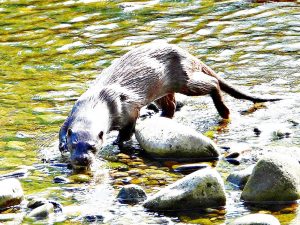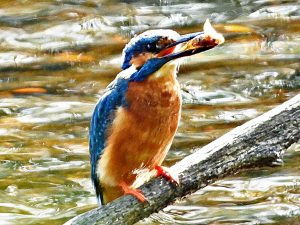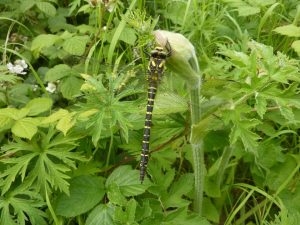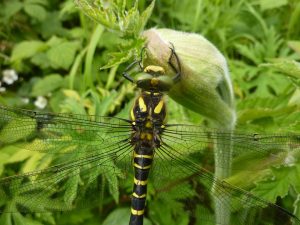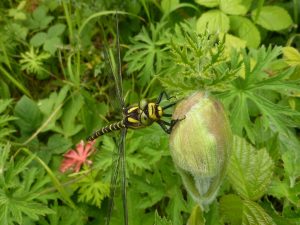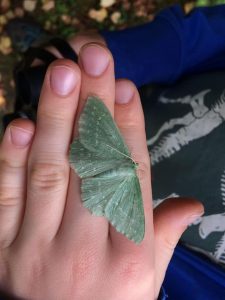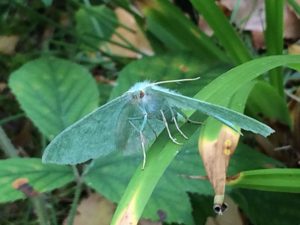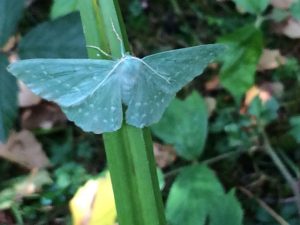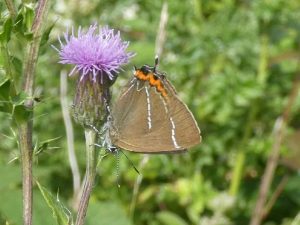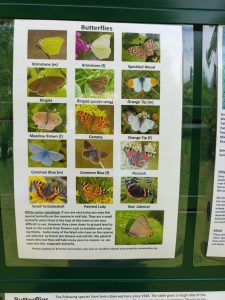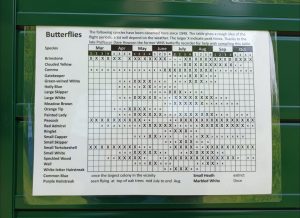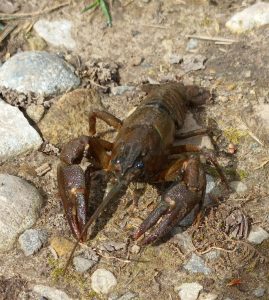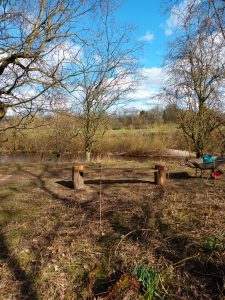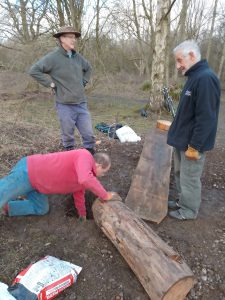The secret to spotting otters is to go birdwatching and wait for a kingfisher to appear. That’s what Frank Munkes a regular visitor to the reserve did on Monday morning with stunning results. I believe we have here a male kingfisher eating a stickleback and a dog otter that includes the this section of the wharfe in its territory. Its the best otter photo I’ve seen taken at the reserve. Thanks for sharing Frank
All posts by Steve Parkes
Female Golden-ringed dragonfly
A beautiful large emerald moth from last week Thanks to Graham Robinson
Recent sighting of one of 3 White Letter Hairstreaks seen near the old metal gate towards the road side . Thanks to Peter Corry
sssss
xxxx
Butterflies
When visiting the reserve why not take a few minutes checking out the butterfly info. You can see photos of our main species and a handy table to see which butterflies you have a chance of seeing that week. Warm, still, sunny times are best. When the sun comes out after rain shower can be productive. In May we had speckled wood, brimstone, small copper, small tortoiseshell, orange tip, holly blue, and orange tip and peacock.
Orchids
Wonderful to see that the orchids are back in abundance this year after the massive decline a few years ago. Many are quite small which may be down the dry spring.. Estimate around 200 flowering stems. Most are southern marsh orchid with a few common spotted orchids and hybrids of the two. The large fenced area may have helped a bit but those outside haven’t had their heads chewed of by rabbits, fingers crossed. Please me careful where you walk…. enjoy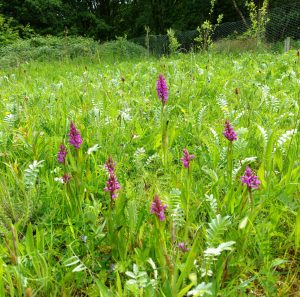
American Signal Crayfish
We discovered this American signal crayfish whilst working on restoring the beck. These were introduced into the wharfe over 20yrs ago and have spread everywhere. Unfortunately they brought a virus with them that our native crayfish are very vulnerable to and are now locally extinct. I believe this is a large male. It is an offence to remove them from the river as its been discovered that they eat smaller signal crayfish and thereby keep the overall numbers down. They are also a popular food source for our local otters

